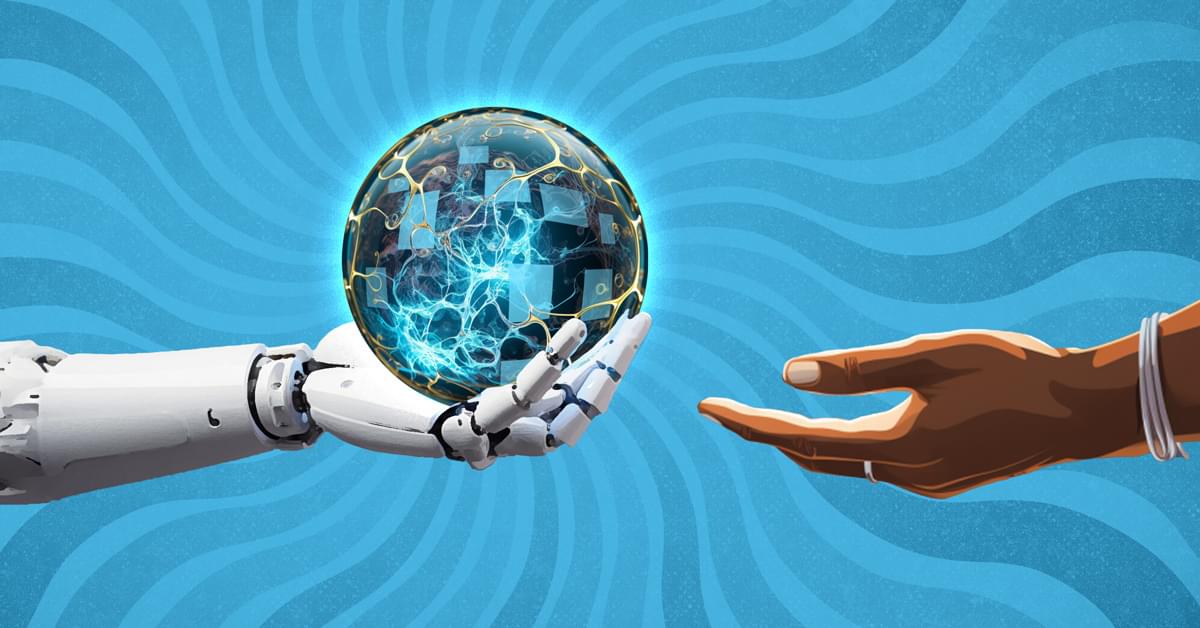Let me start by saying, WOW! What a year?! So many AI headlines in our SEO digital rags. So many tea, popcorn, and alligator emojis used over Verge articles and Board meetings gone wrong. We probably don’t even recall all the failed attempts at Twitter X replacements and Yandex leaks.
So, as we approach 2024, what do I see in my proverbial crystal ball? Many fast and lean companies that don’t have SEO/content teams creating noise with AI content, Google and Bing finding creative ways to surface things not written by a bot, and SEOs working toward adapting to the new reality.
But what does that look like? How will we, as SEOs and marketers, be able to create and optimize content in a sea of AI-generated text?
More authentic videos everywhere
There’s a growing cohort of consumers who rely on video for discovery, research, and making purchase decisions. But not any kind of video will do. Authentic stories, tips from experts, reviews/unboxing from users, and, of course, entertainment.
I see more of this being surfaced by Google in SERPs, video search, shopping, YouTube, and AI-generated results. Not only to push the AI content out of sight but also to build trust and attract a younger audience that may be more inclined to search on TikTok or Instagram.
How to get ready: Think about how to bring your video content to life with E-E-A-T. Focus on creating bite-sized videos to tell real stories and answer audience questions, encourage customers to create useful videos about products, partner with micro or nano-influencers. Provide creators with tools and guides to support them with on-brand productions. Leverage this content in blogs, on social media, and on product pages when it makes sense. The idea is to create once and share many times on multiple surfaces and platforms.
More UGC and community-style content
Google announced in November that they would be surfacing more personal insights and experiences from social media, blogs, and forums, and also adjusted their rater guidelines to provide guidance around content for these “hidden gems.”
With this in mind, I see growth-minded marketers finding nimble ways to test, learn, and optimize by surfacing content from existing communities or events.
How to get ready: Take the time to test before diving in. Look for low-effort, high-impact opportunities. To start, is there an existing community where your audience lives already? Could you leverage content from there? Could you partner with them in some way? Alternatively, if you host webinars or events, can you capture user feedback or videos there? If you run an e-commerce shop, can you incentivize customers to leave video reviews, share explainer videos, or at least a photo with their feedback? Getting customers and audience members to share their experiences is a fantastic way to build brand trust and advocacy and potentially get more exposure in search results.
Continuous shifts in SERP features
We’ve seen a lot of change over the last decade, and with SGE and Bing surfacing AI-generated results, it doesn’t appear that it will slow down anytime soon. This year, expect to see a lot of testing in the SERPs. Google and Bing will be finding ways to serve up better results and experiences to benefit searchers, brands, site owners, and advertisers.
Expect to see a higher percentage of no-click results with sources for informational searches, more experiential results like augmented reality for education and e-commerce, simplified paths to conversion by surfacing even more product information directly in the SERPs for transactional queries in both traditional and AI-generated results, and new advertising opportunities in the chat results.
If I take it a step further, I could see Google surfacing AI-generated search features directly in their Android mobile message app to help their users get answers and make purchases directly in-app.
How to get ready: Keep an eye on MozCast to see how SERP features evolve over time. As things evolve, consider where to incorporate Schema markup on your site to maximize inclusion in featured snippets, other SERP features, and potentially in AI-generated responses. For e-commerce, take advantage of the Google Merchant Center integration and make sure your feed is up-to-date. With no-click results, think about how to measure success. Site traffic may decline, but with the right strategy, structured data set up, and a smooth path to purchase, conversions directly from search have the potential to rise.
